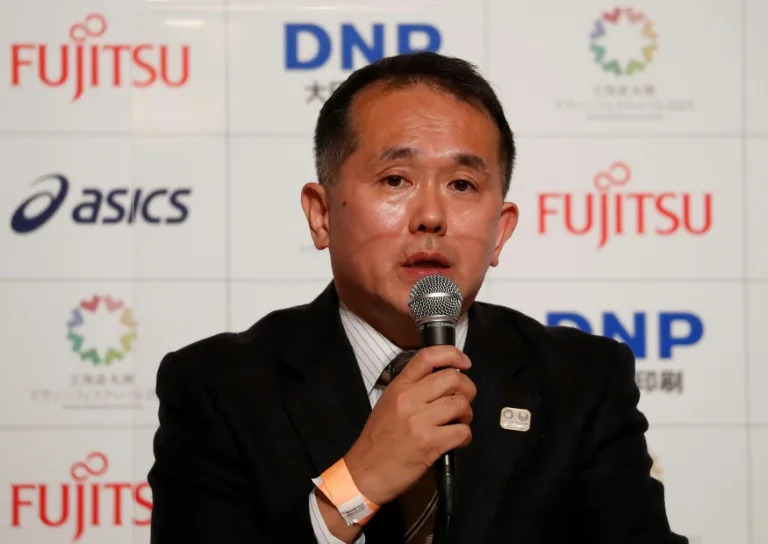UKGordon Brown: Government and Ofgem are creating booming business for loan sharks
Alana Calvert, PA
Tue, 7 February 2023
Former prime minister Gordon Brown has accused Ofgem and the Government of creating a “booming business” for loan sharks after the prepayment energy meter scandal was uncovered.
Mr Brown accused the regulator’s chief executive, Jonathan Brearley, of “dismally” failing to protect vulnerable customers after it was revealed that hundreds of thousands of impoverished Britons were forced to switch to costly prepayment meters, pushing some of them into the hands of illegal moneylenders.
The scandal uncovered by The Times found that British Gas routinely sent debt collectors to break into customers’ homes and force-fit pay-as-you-go meters, even when they were known to have extreme vulnerabilities.
Responding to these revelations, Mr Brown said the Ofgem boss needed to “consider his position” after “failing on his responsibilities to energy customers”.

Former prime minister Gordon Brown accused Ofgem’s chief executive, Jonathan Brearley, of ‘dismally’ failing to protect vulnerable customers(Jane Barlow/PA)
Writing in The Independent, the former Labour leader savaged both the energy regulator and the Government for perpetrating “harsh and callous policy decisions” and “failing to defend low-income families against the indefensible”.
“(Mr) Brearley’s official responsibility… is to ‘protect energy customers by ensuring they are treated fairly’… (and to) ‘stamp out sharp and bad practice’,” Mr Brown said.
“So (Mr) Brearley – and the now restructured Energy Department – should immediately explain why instead of being on the side of the public, they have failed dismally to properly monitor and expose utility companies and their debt agents who, in the middle of the worst cost of living crisis for 50 years, have been breaking into the homes of impoverished customers.”
The former prime minister said Ofgem was “not alone in failing to defend low-income families against the indefensible”, accusing the Government and its agencies of “harsh and callous policy decisions” that were “turning illegal money lending into Britain’s biggest booming business among low-income communities”.

A recent Times investigation revealed British Gas routinely sends debt collectors to break into customers’ homes and force-fit pay-as-you-go meters, even when they are known to have extreme vulnerabilities (Steve Parsons/PA)
Mr Brown said that through his work with local charities he had learnt users of pre-payment metres were needing to spend “a lot more” for each unit of their energy, adding that “at least” 20% of them had not been able to obtain the cash or discount vouchers they were promised.
“This failure to act is creating an even more serious social emergency for hardpressed families: Pushing them further into debt and, most worrying of all, into the hands of illegal moneylenders,” he said, listing the bedroom tax, the two-child rule and other caps and taxes which had worsened the financial situation for low-income households.
“Ministers are leaving families unable to cover the costs of their weekly food bill, without resorting to borrowing wherever they can find cash.
“The welfare state safety net is now full of holes – and instead of being the last line of defence for people in need, our own social security ministry is pushing families into ever more desperate measures.”

The former Labour leader said ‘our own social security ministry’ was ‘pushing families into ever more desperate measures’ (Andrew Matthews/PA)
He added: “Blood is in the water and loan sharks are circling.
“A record number of families are now so deep in debt that they are turning to the door-step lender, and the pay-day lender standing outside the cut-price stores, the pub and the betting shop. And even more worryingly, as illegal money lending moves online, the desperate are even more at risk as long as these social media platforms remain exempt from proper scrutiny.
Mr Brown’s comments follow the senior presiding judge of England and Wales telling magistrates to stop the processing of applications by energy firms to enter homes to install prepayment meters.
Ofgem has already asked energy suppliers to suspend the activity.
Meanwhile, Paypoint revealed that around one in five people did not redeem the £66 energy support voucher they were sent in November by the company under a Government support scheme
Of the hundreds of thousands of vouchers sent out only about 81% had been redeemed on Sunday when they ran out – 90 days after they were issued.
It means that thousands of households with prepayment meters missed out on energy bill support they were entitled to receive.
Fakery and fraud: Energy scammers cast
'wide net' on Facebook
Anuj Chopra, with Lucille Sodipe and Faith Brown in Manila and Gemma Cahya in Jakarta
Tue, 7 February 2023

A Filipino consumer fumes as she rips open a portable charger to discover she has been conned -- the batteries are choked with sand, making her yet another victim of scammers on Facebook.
AFP's fact checkers have uncovered a slew of energy-related scams proliferating on Facebook -- from fake solar panel incentives in the United States to hoax electric bike giveaways in Indonesia and the sale of dud devices in the Philippines.
And the trend underscores how fraudsters worldwide profit off disinformation, casting a wide net across social media users, many of whom take the bait amid a cost of living crisis and high utility and energy costs.
"What they did was awful," the 24-year-old Filipino, Brenilyn Ayachock, vented in an online video that showed sand pouring out of the power bank as she opened it with a knife.
"We were expecting a good product, but this is what they sent us."
Ayachock made the purchase on what appeared to be the Facebook page of a legitimate energy device retailer, with "special offers" and "flash sales" alongside environment-friendly messages such as "turn off unnecessary lights."
The page stopped responding to her, Ayachock said, after she bought the device for 1,500 pesos ($28), a small fortune at a time of galloping inflation.
She immediately reported the page to Facebook, but it was still active as of this week.
- 'Scammers follow headlines' -
Ayachock is far from the only victim as social media becomes a breeding ground for everything from bogus cryptocurrency ads, to "romance" scams and hoaxes aimed at extracting people's personal data.
Last year, the Philippines government warned against "unscrupulous" money-saving offers as consumers grappled with backbreaking utility prices.
AFP debunked Facebook posts that used doctored news reports to promote a bogus "power saving" device they claimed could slash electricity bills.
The warnings fell on deaf ears, with commercial data showing thousands of such gadgets are sold monthly. Activists say complaints in online reviews are drowned out by comments from people desperate to try anything to lower their expenses.
"Scammers follow the headlines and there isn't a day that goes by that we don't hear about how to conserve energy, rising gas and utility prices and the need for renewable energy," Amy Nofziger, director of fraud victim support at the US-based nonprofit AARP, told AFP.
"It's a wide net for scammers. Most social media sites do not thoroughly vet the ads placed on their sites, however many users do not know this and they put their full trust in these advertisements."
The ease with which fraudsters pelt users with disinformation raises questions about the capacity of platforms like Facebook to police paid-for scam advertising that is a lucrative revenue source.
Critics, including Patricia Schouker, a fellow at the Colorado-based Payne Institute, say algorithms that prioritize content based on preferences have let scam ads prey on users most likely to engage.
- 'Scams evolving' -
A spokesperson for Meta, Facebook's owner, said it views the "threat of scams seriously" and had taken action including disabling many of the ad accounts responsible for fraud reported by AFP's fact checkers.
"The people who push these kinds of ads are persistent, well-funded, and are constantly evolving," the spokesperson said.
AFP has a global team of journalists who debunk misinformation as part of Meta's third-party fact-checking program.
Last October, AFP debunked Facebook posts claiming free electric bikes were on offer in Indonesia after the government raised fuel prices. Meta said it had disabled pages and profiles linked to the scam.
But Hendro Sutono, a member of the citizen's group Indonesia Electric Motorcycle Community, voiced concern that fake stores offering electric bikes have cropped up on the platform -- and are hard to detect.
"The schemers take pictures from the real stores and repost them on their cloned accounts, so they look really legitimate," Sutono told AFP.
Sutono said he feared fraud could tarnish the image of the electric vehicles to the extent people will give up using them.
In many cases in the United States, scammers pose as utility company representatives. One Oregon-based firm warned its consumers last year that "scams are constantly evolving" and fraudsters tried to target some of them using "Facebook messenger."
"We see a growing number of utility front groups which are organizations that appear independent but are targeting their audience via Facebook, Instagram and TikTok," Schouker told AFP.
"They amplify misinformation... while masking their true identity."
burs-ac/ec











